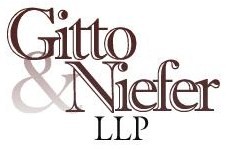From the Desk of David L. Niefer
September Newsletter
Old Slu Followed by New TKR: Don’t fall into the
“Which Guideline” trap
PRACTICE TIP: When evaluating a claim involving a previous schedule loss of use utilizing the pre-2018 Impairment Guidelines, do not assume that the old Guidelines will apply to any increase in the schedule award. Permanency arising out of subsequent causally related surgeries such as TKR must be based upon the 2018 Guidelines.
In NYS Dept of Transportation, WCB G039 5738 (7/16/19), a three-member Board Panel of the New York Workers’ Compensation Board considered a claim where a previous knee injury had resulted in a schedule award to the leg prior to 2018. Thereafter, the claimant underwent causally related total knee replacement surgery and medical evidence regarding an increase in the schedule award was produced after 2018.
At the trial level, the Administrative Law Judge did not consider evidence of permanency under the 2018 Guidelines and directed the parties to produce permanency evidence under the pre-2018 Guidelines (with a potential overall schedule loss of use of the leg of 50-55% rather than 35%). On appeal the carrier argued that the 2018 Guidelines should apply even though the claimant previously received a schedule award to his leg under the pre-2018 Guidelines. The unanimous Board Panel ultimately agreed and rescinded the direction for the parties to produce medical opinions under the pre-2018 Guidelines. The Board Panel then implemented an increase in the schedule award utilizing the 2018 Guidelines resulting in significant savings for the carrier.
Assuming no modification or reversal of the NYS Department of Transportation decision, any evaluation for purposes of settlement value or stipulated SLU should be based upon the 2018 Impairment Guidelines, even though a prior SLU was implemented using the previous permanency/medical guidelines.
If you have a complex claim involving a permanency determination and would like our office to consider the evidentiary and other issues involved, contact David at 607 723-0600 or any of the attorneys in our office. If you would like a training session on this or any other area of the Workers’ Compensation Law, please do not hesitate to contact our firm.
This information is provided for general guidance only. This information should not be used as a substitute for consultation with legal counsel. Each case presents unique facts requiring individual analysis.




